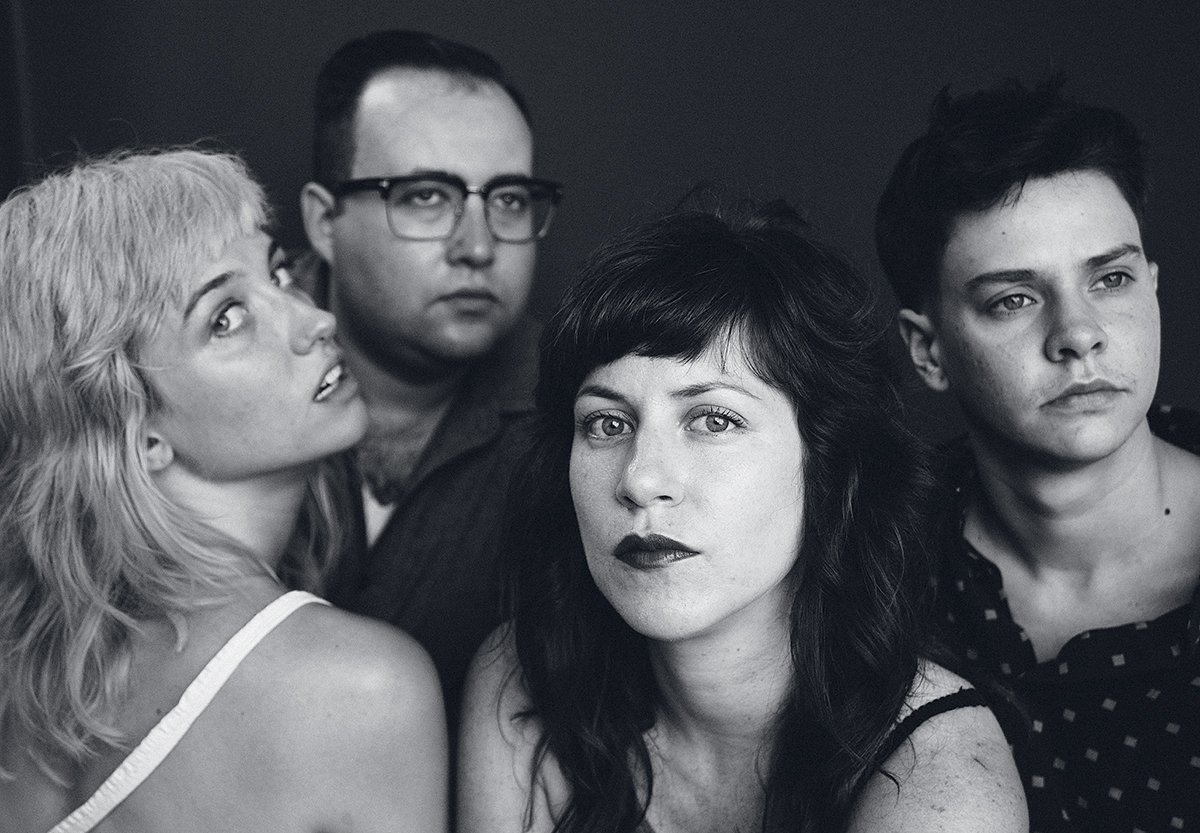DC’s Priests is one of the city’s most prominent bands, but lately their side gig has been getting as much attention as their actual gigs. Priests’ founding members—Daniele Daniele, Katie Alice Greer, G.L. Jaguar, and Taylor Mulitz—created the label Sister Polygon in 2012 as a way to release their own music. But it has since grown into a nationally known imprint, releasing recordings from acclaimed bands such as Snail Mail, Downtown Boys, Sneaks, Governess, and Flasher. Aspiring musicians are now flooding the band with requests to be a part of what has become a notably vibrant underground music label.
Washington has a long tradition of highly influential small labels, including Teen-Beat, DeSoto, Simple Machines, Lovitt, Slumberland, and, of course, Dischord. Now Sister Polygon is continuing that tradition, emphasizing community over commercial concerns. “Growing up in DC, there’s always been a big DIY scene and ethos,” Jaguar says. “What else are you going to do but put out your own records? We typically release stuff that really speaks to us—from people we make deep connections with.”
Right now, the business remains skeletal. Everything is done by band members from their homes. Jaguar, who has a van, delivers seven-inch singles, cassette tapes, and LPs to record stores and the post office, while Greer is the point person on promotion. But given Sister Polygon’s success, they’ll likely soon bring on additional help. “We’re trying to responsibly grow the label,” says Greer. “We want to be a good home for other artists.”
Music fans aren’t the only ones who have noticed Sister Polygon’s ascent. Larger labels including Sub Pop, Merge, Matador, and Domino have snatched up many of its acts. “As we grow as a label and get better infrastructure, hopefully people will want to stay with us more,” says Jaguar. “We can only do so much when we tour full-time.”
But don’t look for its roster to get any more commercial. Sister Polygon remains deeply committed to its underground sensibility—another local tradition. “When people aren’t automatically thinking about dollar signs,” Greer says, “the music is a little more outside of the box.”
This article appears in the October 2018 issue of Washingtonian.
















